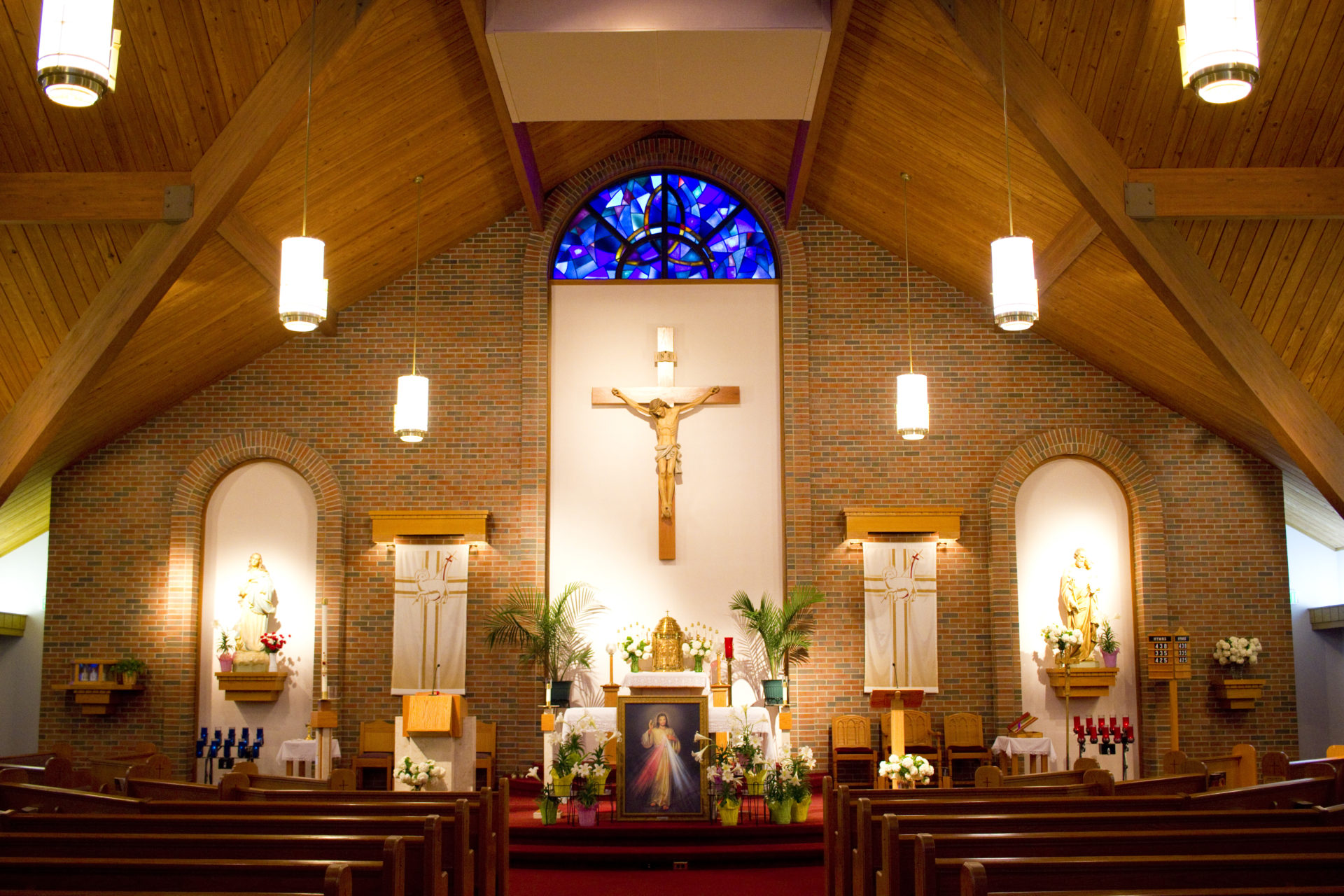Eighth Sunday in Ordinary Time
Fr. Ben Riley
Our Mass today marks the last Sunday before we start the season of Lent. It’s hard to believe that Ash Wednesday is only three days away. It feels like Christmas just ended, and now it’s already time for Lent. But this weekend, the Church, in her wisdom, gives us readings that help us with the transition. Our readings this weekend are meant to remind us of the reason why this Lenten season of preparation is so helpful for people developing lives of faith and relationship with the Lord. We are reminded that Lent is not the focal point but rather a time of anticipation for the true heart of our faith: the Resurrection.
In the 15th chapter of his first letter to the Corinthians, Saint Paul gives the account of the Resurrection, and in our readings today, he shares the life-changing effect Christ’s victory over death has on our lives. It’s amazing—nothing short of immortality. He says:
“Brothers and sisters:
When this which is corruptible clothes itself with incorruptibility
and this which is mortal clothes itself with immortality,
then the word that is written shall come about:
Death is swallowed up in victory.
Where, O death, is your victory?
Where, O death, is your sting?
Therefore, my beloved brothers and sisters, be firm, steadfast, always fully devoted to the work of the Lord, knowing that in the Lord your labor is not in vain.”
This is it. This is why the Resurrection is the focal point of our faith. It is the reason why we perform extra acts of labor during Lent—extra acts of penance, uniting our suffering with the suffering of Christ on the Cross; extra acts of devotion, rejoicing in the glory of the Resurrection that we are called to participate in; and extra acts of charity, uniting ourselves to the universal and mystical Body of Christ.
If we desire to move in a particular direction in our lives, it is important that we know where we are headed. And for the Catholic, the ultimate goal is unity with the resurrected Christ. Saint Paul illustrates this beautifully in his letter to the Corinthians, and in today’s Gospel, Jesus points out what gets in our way.
Out of love, Jesus warns us about the hypocrisy we often suffer from. He does this not to accuse or condemn but to guide us closer to Himself. He says:
“Why do you notice the splinter in your brother’s eye, but do not perceive the wooden beam in your own?
How can you say to your brother, ‘Brother, let me remove that splinter in your eye,’ when you do not even notice the wooden beam in your own eye?
You hypocrite! Remove the wooden beam from your eye first; then you will see clearly to remove the splinter in your brother’s eye.”
Let me ask, have you ever had a splinter in your eye? Well, I have. When I was in seminary at Saint Meinrad, I worked on one of their ministries called Project Warm. We would cut down trees, split them into firewood, and donate the wood to people in the area who heated their homes with wood-burning stoves. It was a lot of fun, and I enjoy working with chainsaws, but I’ll never forget the day I got a large splinter stuck in my eye.
We had just finished felling a tree and were cutting it into sections when, somehow, a piece of wood went past my safety goggles and right into my eyeball. If you know, you know—it’s excruciating. You’re blind and confused, your eye is stinging, and all you want to do is get it out. Eventually, after flushing my eye with water, the splinter came out, and thankfully, it didn’t do any damage.
I’m sure many of you have had a similar experience. Maybe it wasn’t exactly a splinter, but we have all, at one time or another, gotten something stuck in our eye. And if you can remember that feeling, I think it helps us better understand why Jesus used this as an example.
When there is something stuck in your eye—no matter what it is—nothing else in the world matters. You’re not concerned about anything or anybody else. The only thing you want in that moment is to get that thing out of your eye.
My brothers and sisters, I think this is one of the reasons why Jesus used such a striking image. Our sin should feel to us like having something stuck in our eye. Instead of pointing out the sins and flaws of others, we ought to desire—more than anything—to remove the sting in our own eye first. Then, and only then, can we help others grow in virtue.
Notice that Jesus doesn’t say we shouldn’t help people remove the splinter from their eye—He just says we should address the wooden beam in our own eyes first. And this is what the season of Lent is all about.
On this final Sunday before Lent, let us embrace this season as a journey inward—a time to examine our hearts, to recognize and remove the splinters and wooden beams that obscure our vision, and to renew our commitment to follow Christ. Our acts of penance, extra devotion, and charity are not mere rituals; they are deliberate steps in preparing our souls. They cleanse us, transform us, and guide us toward the glorious promise that awaits: the Resurrection of our Lord.

